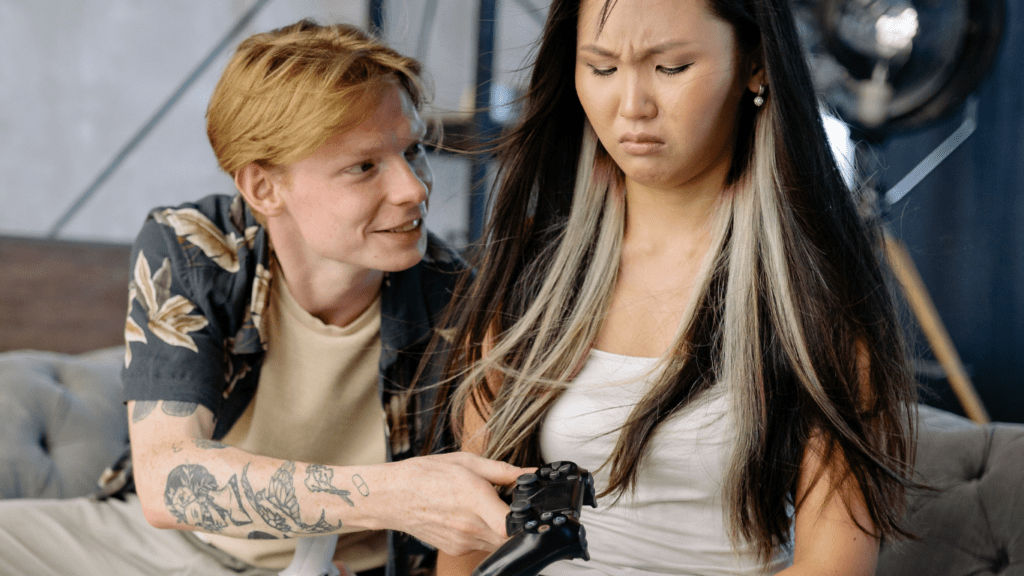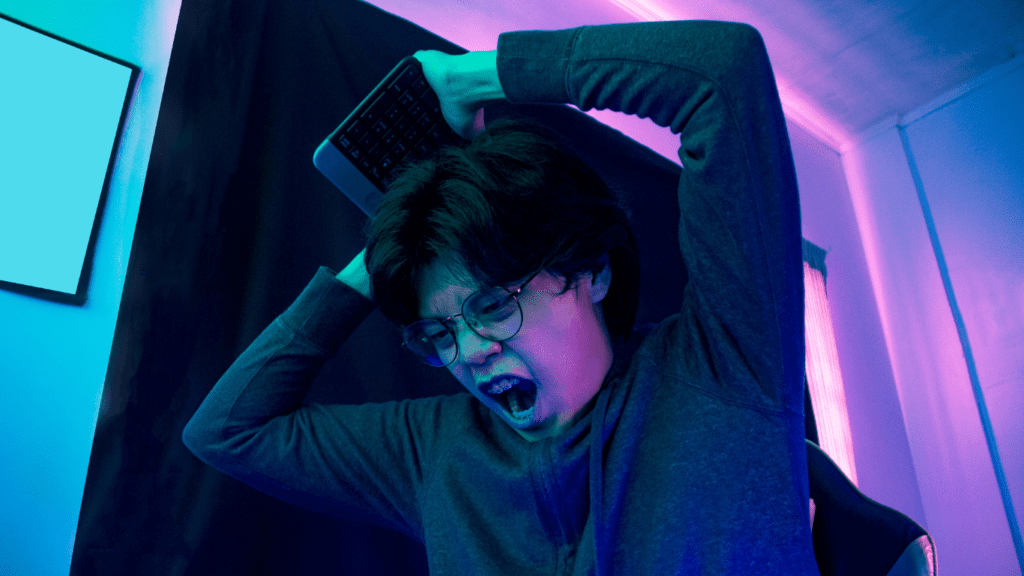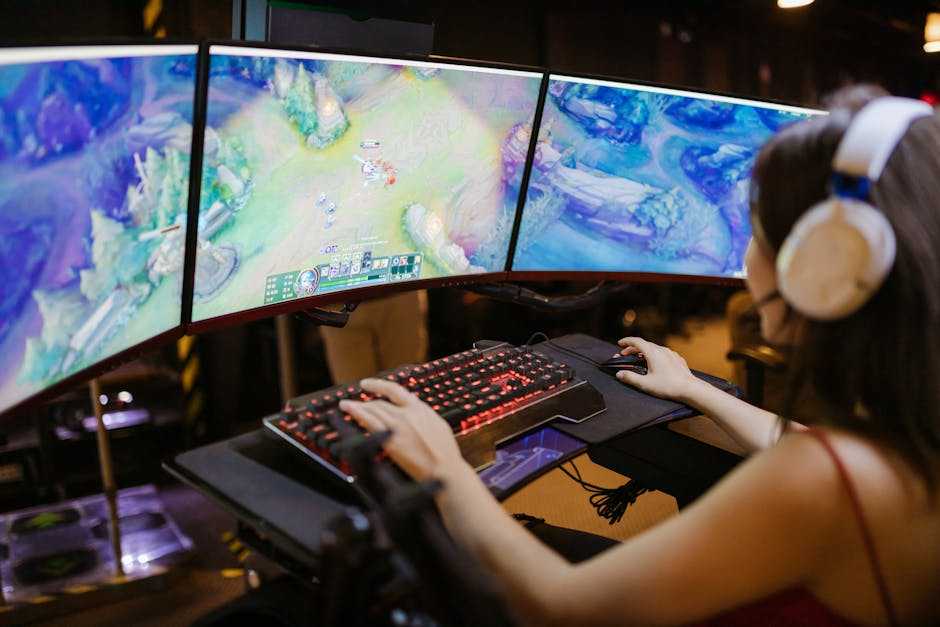Understanding the World of Professional Gaming
Psychological Pressures in Competitive Gaming
- Professional gamers face intense psychological pressures.
- They must consistently perform at peak levels, with mistakes magnified under the scrutiny of thousands, sometimes millions, of viewers.
- The continuous need to compete at high levels can lead to stress, anxiety, and burnout.
- Gamers often spend over 10 hours daily practicing, which can strain mental health.
These sessions include maintaining high concentration levels, often resulting in exhaustion. Consequently, the relentless quest for perfection affects their mental well-being.
The Hidden Struggles Behind the Screen
- Professional gamers often face hidden struggles that aren’t visible to their audience.
- Many experience isolation due to long hours in front of their screens, which can lead to feelings of loneliness and depression.
- The industry’s competitive nature can also cause a fear of failure, further exacerbating mental health issues.
- Additionally, gamers deal with online harassment and hate, which can impact their self-esteem and emotional state.
- Mental health support systems are crucial for addressing these unseen struggles, helping gamers maintain their well-being amidst the high stakes of professional gaming.
The Importance of Mental Health Support for Professional Gamers
How Mental Health Support Can Improve Performance
In professional gaming, maintaining mental health is crucial for peak performance.
Continuous stress and lack of support can decrease a gamer’s ability to make quick decisions.
Anxiety often hampers concentration, leading to mistakes during gameplay.
With adequate mental health support, gamers learn coping strategies to manage stress and anxiety.
Consistent mental health care allows gamers to focus better and react swiftly. Support systems, including counseling, help them process emotions and develop resilience.
Resilient gamers adapt faster to competitive pressures.
Wellness programs, like those offered at Carrara luxury rehab Malibu, often include mindfulness and meditation practices, which improve emotional regulation.
Case Studies: The Impact of Mental Health Programs

Several esports organizations have implemented mental health programs with notable success.
Team Liquid, a renowned esports team, introduced comprehensive mental health initiatives.
These programs offered regular counseling, which decreased instances of burnout among players. Players reported improved focus and better team cohesion.
In another example, Fnatic, a prestigious esports team, incorporated wellness programs including yoga and mindfulness into their routine. Players experienced reduced anxiety levels.
As a result, their overall performance metrics, such as reaction times and strategic decision-making, saw a significant boost.
Astralis, another elite esports organization, integrated sports psychologists into their training regimen.
Players learned effective stress management techniques, which translated into fewer errors during high-stakes matches.
This approach led to more consistent performances and improved rankings.
| Team | Key Mental Health Initiative | Observable Outcome |
|---|---|---|
| Team Liquid | Regular counseling sessions | Decreased burnout, improved focus, better team cohesion |
| Fnatic | Yoga and mindfulness practices | Reduced anxiety, enhanced overall performance |
| Astralis | Sports psychologist integration | Fewer errors, consistent performance improvement |
These case studies highlight the efficacy of mental health support in esports. Proper mental health initiatives can significantly enhance a gamer’s performance, proving essential in the competitive world of professional gaming.
Establishing Effective Mental Health Strategies
Creating a Supportive Environment
Professional gaming requires a robust support system. Teams need to foster a community where mental well-being is prioritized.
For example, creating safe spaces for open discussions about mental health can reduce stress and stigma.
Encouraging balanced lifestyles with adequate rest, exercise, and proper nutrition is crucial.
Implementing designated zones for relaxation within training facilities can also help. Collaborative activities beyond gaming, like team-building exercises and hobbies, can enhance overall morale.
Implementing Routine Mental Health Checks
Routine mental health checks ensure early identification of issues.
Professional gamers benefit from regular sessions with licensed mental health professionals.
Quarterly evaluations can help track mental well-being and provide timely interventions.
Tools like surveys and self-assessment forms can offer insights into stress levels and emotional health.
Training staff to recognize signs of mental strain and establishing a referral system for professional help can strengthen this strategy.
Collaborative Efforts in Gaming Communities
1. Role of Organizations in Mental Health Advocacy
Organizations play a critical role in mental health advocacy within gaming communities.
Esports organizations like Team Liquid and Fnatic exemplify this by prioritizing the mental well-being of their players.
These organizations often employ licensed mental health professionals to conduct routine assessments.
This proactive approach helps mitigate issues like stress and anxiety before they escalate.
For example, Astralis has implemented comprehensive mental wellness programs which have led to improved focus and reduced burnout among their players.
By promoting mental health initiatives, organizations enhance overall player performance and create a healthier competitive environment.
2. Community-Driven Support Networks
Community-driven support networks offer valuable contributions to mental health in gaming.
Online forums, social media groups, and peer support networks provide spaces for gamers to share experiences and access resources.
Platforms like Reddit and Discord host communities where professional gamers can seek advice or simply connect with others facing similar challenges. These networks foster a sense of belonging and reduce feelings of isolation.
Examples include the r/Esports subreddit, which has a dedicated space for discussing mental health.
Through these collaborative efforts, community members can offer support, share coping strategies, and advocate for a culture that prioritizes mental well-being.


 Darcy Cazaly is a key contributor at Infinity Game Saga, where he brings his expertise to the world of gaming journalism. As a dedicated member of the team, Darcy focuses on delivering in-depth articles and insightful analyses that cover a broad range of topics within the gaming industry. His work includes exploring the latest trends, dissecting game mechanics, and providing thorough reviews of new releases.
Darcy's commitment to high-quality content ensures that readers receive accurate and engaging information about the evolving gaming landscape. His writing not only informs but also enriches the gaming experience for the community, offering valuable perspectives and up-to-date news. Through his contributions, Darcy helps bridge the gap between gamers and the dynamic world of gaming technology and trends, making him an essential part of the Infinity Game Saga team.
Darcy Cazaly is a key contributor at Infinity Game Saga, where he brings his expertise to the world of gaming journalism. As a dedicated member of the team, Darcy focuses on delivering in-depth articles and insightful analyses that cover a broad range of topics within the gaming industry. His work includes exploring the latest trends, dissecting game mechanics, and providing thorough reviews of new releases.
Darcy's commitment to high-quality content ensures that readers receive accurate and engaging information about the evolving gaming landscape. His writing not only informs but also enriches the gaming experience for the community, offering valuable perspectives and up-to-date news. Through his contributions, Darcy helps bridge the gap between gamers and the dynamic world of gaming technology and trends, making him an essential part of the Infinity Game Saga team.
